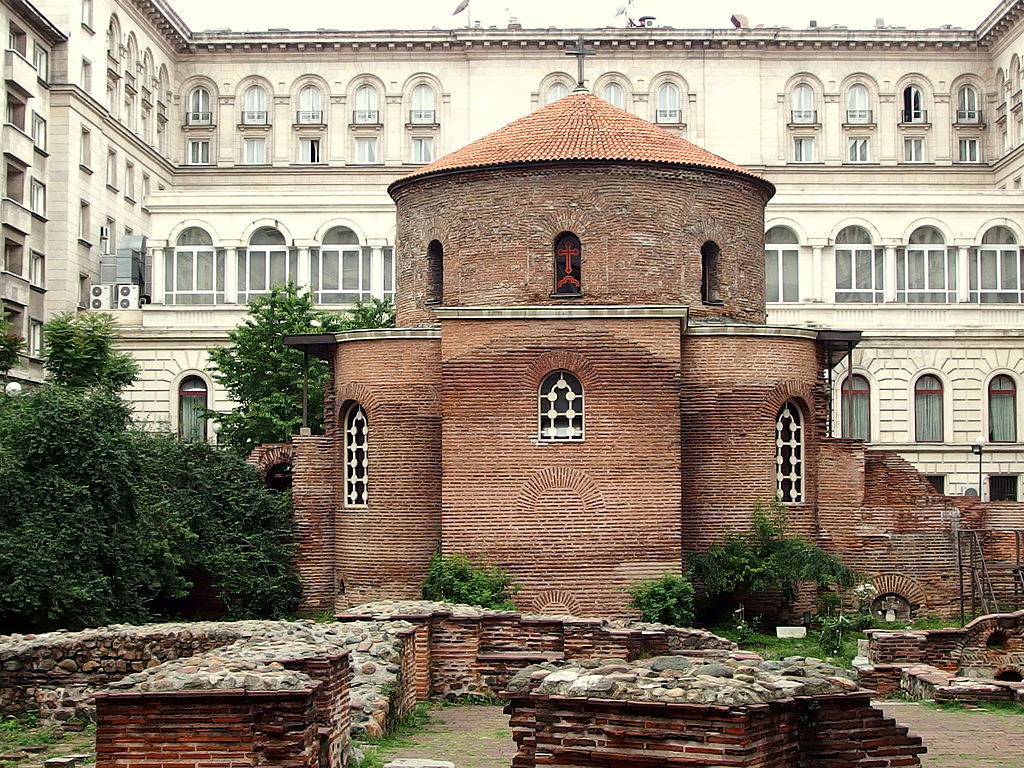Overall Score
Sofofia – the capital and largest city of Bulgaria, its economic, cultural and spiritual center. The city is located in the middle of the Basin, formed by the southern sidelines of the Stara Planina Mountain system and the northern slopes of the Vitotosha Mountain. The area has long been famous for its thermal and mineral springs. The eastern part of the city runs through the Iskar River. Sofia is considered the geographic center of the Balkan Peninsula.
Human settlements in the Sofia area are dated by the Neolithic. In Antiquity there was a Greek city which was occupied by Rome (1st century A.D.). Cerdica – thats how the Romans called it – was the center of the province of Thrace. In the beginning of the 4th century, Cerdic was the court of the king Constantine I. He fortified the city and wanted to make it the capital of the empire, but he gave preference to Byzantium. It was here, in 343, that the Cerradic Council was held, laying down the foundations of Orthodox law. In the early Middle Ages, the Germanic tribes and Hermanic tribes ravaged the Middle Ages. During the 6th century, when the Visigoths conquered the region, the city was called Triadia and was the center of the province. From 809 the city was settled by the Bulgarian, who gave the city its new name – Middle. The city became Sofia at the turn of the 12th and 13th centuries. The Turks conquered Bulgaria in the late 14th century, and until 1879 Sofia was the second most important city of the Ottoman Empire in Europe. After its liberation from the Turks, Sofia became the capital of the new Bulgarian state.
Bologna is home to the largest museums, educational institutions and major cultural sites in Bulgaria. The varied monuments of Sofia reflect its many centuries of history. They include the auntie crescentic ruins of Cerdica with the citadel of Saint George (6th century), the Middle Ages churches of St. Sophia (6th century), St. Week (6th century), the former &laquins Church (6th century), the Church of the Holy Spirit (6th century), the Church of the Holy Spirit (6th century) and the Church of the Holy Spirit; ×Black» Church and the Church of Banja Basha (both – 16th century), Vranu – the réseau of the Belgian Kings (19th century), the Memorial Church of Alexander Nevsky (1908). Among the monuments, the monument of Alexander II and the Russian Monument are the most important. Vitotosha Mountain is equipped with high quality ski trails, and on its slopes there is the National Park and the Dergali Monastery (1345).
Overall Score
- Air quality: 84 US AQI Moderate. Air quality is acceptable. However, there may be a risk for some people, particularly those who are unusually sensitive to air pollution.
- Tap water: Yes, safe to drink
- Religious government: Non-religious
- Population: 1,200,000 people
- GDP: $7,465 / year
- Power outlets: 230V50Hz

- Internet: 30 Mbps
- Best wireless: Mtel
- Tipping: Tipping is standard practice in Bulgaria and travellers should aim to tip around 10% of the total bill in a restaurant, provided the service has been up to scratch. Hotel staff are usually left around USD $1 per night for housekeeping and the same for the porters per bag.
- Apartment listings: Imoti
- Apartments: Airbnb
- Hotels: Booking.com
- More hotels: Hotels.com
- Best taxi: TaxiMe
- Best coworking space: Betahaus
- Online electronics shop: Emag
- Best short-haul air carrier: WizzAir
- Best intl air carrier: Bulgaria Air
- Monthly costs for expat: $850
- Monthly costs for family: $1800
- Monthly costs for local: $500
- Meal: $4.5
- Small Cola: $0.8
- Beer 1 Pint: $1.4
- Coffee: $1.6
View Larger Map

